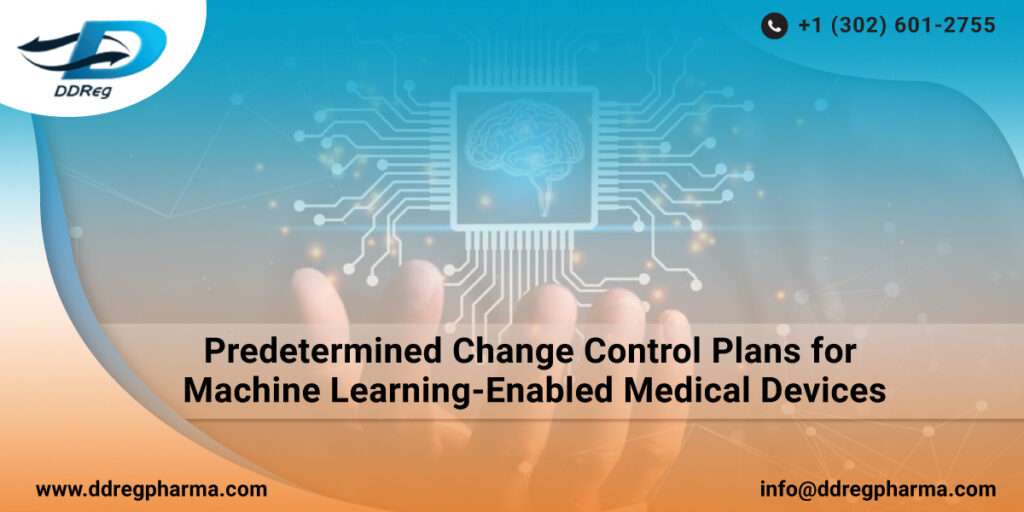As more artificial intelligence (AI) and machine learning (ML) technologies become increasingly available, the uniqueness of medical devices also evolve. Though AI/ML-driven devices provide support for diagnosing and treating more complex conditions, their unique features highlight the need for a more harmonized approach towards device regulation for patient safety. Regulators across the globe are gradually coming together to facilitate harmonization.
In 2021 the US FDA, Health Canada and the UK’s MHRA collaborated to establish 10 guiding principles called Good Machine Learning Practice (GMLP to promote the development of AI/ML technologies that learn from real-world usage and enhance device performance. More recently, in October 2023, a set of 5 guiding principles known as predetermined change control plans (PCCPs) were introduced, influenced by GMLP to enhance the quality and accessibility of AI/ML enabled devices (MLMD) by aligning with GMLP.
Adapting MLMD models or algorithms may demand supervision and premarket evaluations, creating hurdles in MLMD advancement. This collaborative initiative brings together the regulatory authorities and industry stakeholders promoting Global harmonisation and cooperation leading to advancing health equity in AI/ML enabled device development and digital health space.
The Five Guiding Principles for PCCPs
The heart of these guiding principles lies in the five core principles governing PCCPs for MLMDs
Focused and Bounded: PCCPs should outline specific and well-defined changes within the intended use or purpose of the original MLMD, including:
- planning for safeguarding modifications
- methods for testing and validating the changes
- mechanisms to detect and address changes that do not meet performance criteria
Risk-based: The value and reliability of a PCCP are enhanced when a risk-based approach is applied throughout the entire product lifecycle (TPLC). This approach ensures that changes are appropriate over time for the device.
Evidence-Based: Evidence-based practices throughout a medical device’s life cycle ensure safety, demonstrate that benefits outweigh risks, and confirm effective risk management within a PCCP. The methods and metrics used to measure the device’s performance should be scientifically and clinically justified.
Transparency: PCCPs should provide clear and detailed information about the device’s performance and changes to stakeholders. The information should include:
- accurate characterised data used in the development and modifications
- comprehensive testing for planned changes
- Documented device characteristics before and after changes
- Information on monitoring, detecting and responding to deviations in device performance
This transparency ensures that stakeholders remain informed about the device’s performance and usage throughout its lifecycle.
Total Product Lifecycle (TPLC): Using a PCCP from a TPLC perspective can:
- enhance the quality, integrity, and safety of devices
- incorporates stakeholder perspectives and existing risk management practices throughout the TPLC
Regulatory agencies are actively exploring the broader applications for the use of principles beyond AI/ML, which may extend to other medical technology products that use PCCPs. These principles also encourage the engagement of stakeholders in the discussions. The ultimate goal is to form a universal framework for promoting digital health.
Conclusion
The introduction of these guiding principles reflects a commitment to responsible, ethical, and equitable use of AI/ML in healthcare. These principles emphasise regulatory commitment to promote global harmonisation, promoting innovation, collaboration, and health equity. These principles are formed to ensure that AI/ML technologies benefit patients and healthcare providers alike by emphasising focused, risk-based changes with transparency and stakeholder communication.
DDReg brings over 14 years of experience in end-to-end regulatory services for a spectrum of complex products, including medical devices. Keep up to date with DDReg’s expertise- read the previous blog on ISoP: The Need for Patient Engagement in Pharmacovigilance.

